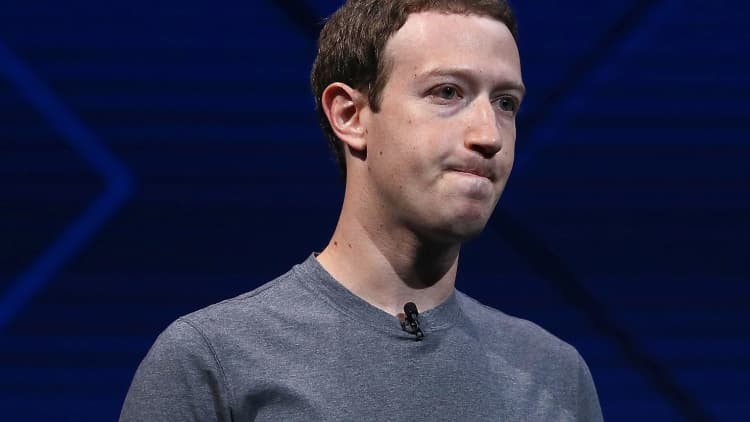
An early Facebook and Google investor said Tuesday that revelations of Russian propaganda during the election have elevated his concerns about the personal data collected by the tech giants.
About 150 million Americans came in contact with divisive content or advertisements from bogus Russian-based accounts, according to Facebook. Russian state actors are also suspected of trying to influence the election through platforms like Google and Twitter.
"Those people have all been Zucked. They've all had their brains altered, and they've come to believe things that weren't true. And I want Facebook to contact every one of them," Roger McNamee said, referencing Facebook CEO and co-founder Mark Zuckerberg.
"I don't know if I would have seen it if it hadn't been for the Russian thing," McNamee told CNBC's "." "It was only because weird things were going on in the election that I even noticed something was weird."
McNamee said Facebook should contact each person who came in contact with any "baloney" Russian propaganda on the social media site. He also said it's important that Congress ask the CEOs to come in and discuss any Russian election interference in public.
"The thing that's so different about Facebook and Google is they have personal data on every adult and most young people," McNamee said. "They are going straight into the brain of 2 billion people, and we don't have evolutionary defenses for that."
McNamee is a managing director at investment firm Elevation Partners, which invested in companies like Yelp, Palm and Facebook. Former Apple executive Fred Anderson and musician Bono also help lead the group.
McNamee's comments came after Sean Parker — an early Facebook executive — said the site was built to exploit human vulnerability. McNamee pointed to other examples, like Google's YouTube Kids, that hook relatively "defenseless" consumers.
"To me, the notion that the original president of Facebook is ... admitting that they thought about addiction as the basis of a business model is a big change. It's one thing for me to say it, it's quite another for Sean Parker to say it," McNamee said.
Facebook has said it is doubling its staff that's focused on sensitive security and community issues to 20,000 by the end of next year, an investment that will impact its profits.
Facebook and Google were not immediately available to comment on McNamee's remarks.
"They didn't [build their platform] because they wanted to blow up democracy. I don't think anyone thought they would be as successful a company as they are," McNamee said. "The reality is, though, they have been that successful."
But McNamee said demands from consumers would be more powerful than just trying to undermine Facebook's profits. He said consumers should push to own their own data and that technology companies should clarify how much of consumers' data they can really view.
"Did you sign up at the beginning to have them use your information for the rest of your life? To sell it to people for uses other than Facebook?" McNamee asked. "And for them to look for pictures of you everywhere they can find them and identify everything you're doing? Did you actually sign up for that? Do you even know — does any of us know — what's in the user agreement?"


